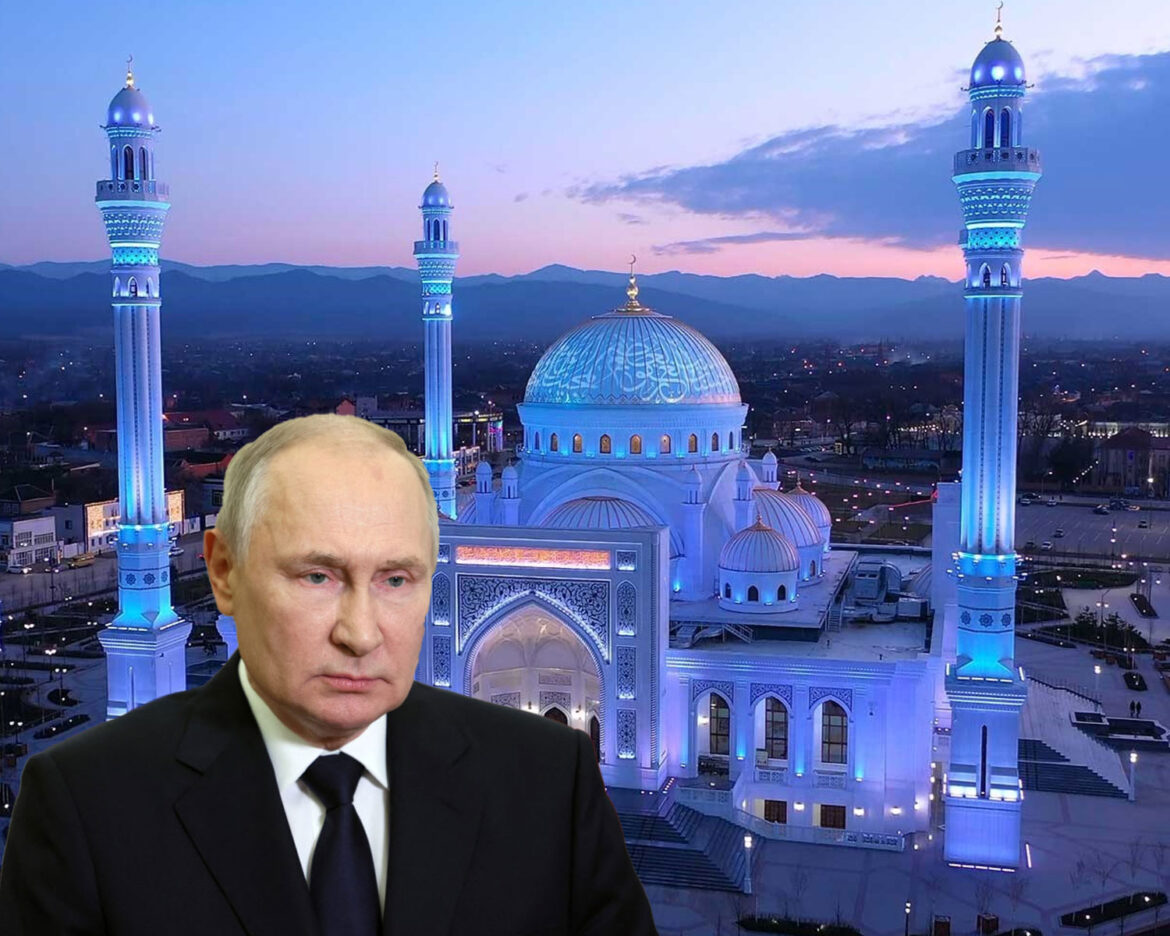Moscow, Russia – October 6, 2024 — In a statement marking the ongoing commitment to religious diversity and cultural integration, Russian President Vladimir Putin announced that 8,000 new masjids (mosques) have been constructed across the country in recent years. He emphasized that this is part of Russia’s continued efforts to accommodate its growing Muslim population and ensure that all citizens have access to places of worship.
“We are proud of our nation’s multicultural heritage, and building these 8,000 mosques is a testament to our commitment to religious freedom and the principles of coexistence,” Putin said during a speech at the opening of a new mosque in Kazan, Tatarstan, a region known for its significant Muslim community.
Putin further remarked that the government is dedicated to fostering peaceful interfaith relations and would continue to support the construction of additional religious facilities for Muslim communities across Russia. “Our goal is to meet the needs of all citizens, regardless of their faith, and ensure that religious practices can be observed freely and with respect,” he added.
The Russian president’s announcement has drawn both praise and some criticism. Supporters argue that the government’s efforts to enhance religious infrastructure demonstrate a modern approach to social unity, especially in light of Russia’s diverse population. On the other hand, some critics have questioned whether these initiatives are being implemented fairly and whether they reflect the needs of all religious groups within the country.
Muslim leaders across Russia have largely welcomed the news, expressing their gratitude for the government’s recognition of Islam’s role in Russian society. “This is a significant step in promoting tolerance and peaceful coexistence,” said Rushan Abbyasov, the chairman of the Council of Muftis of Russia. “We are confident that with continued support, Russia will remain a model of interfaith dialogue.”
The announcement also comes amid ongoing debates regarding the role of religion in Russian politics and society. While Orthodox Christianity remains the dominant religion, Russia is home to millions of Muslims, particularly in regions like the Volga, North Caucasus, and parts of Siberia. The government’s efforts to support Muslim communities are seen by some as a balancing act in an increasingly complex socio-political landscape.
The construction of these mosques has been funded by both federal and regional governments, as well as private donations from Muslim communities in Russia and abroad. As part of the initiative, many of the new mosques also serve as centers for cultural exchange, educational programs, and social services.
Putin concluded his speech by reiterating the importance of unity in diversity: “Our strength lies in our ability to live together, to understand each other, and to build a future based on mutual respect. Russia is a land where all religions can flourish side by side.”
As Russia continues to modernize its infrastructure, the construction of these new masjids is just one aspect of a broader strategy to support the country’s diverse religious communities. The government has indicated that it will continue to prioritize religious tolerance and inclusivity as part of its national policy in the coming years.



